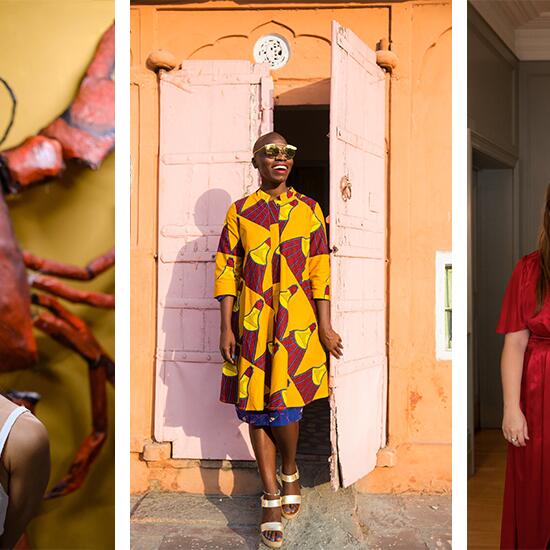When Serena Guen MacLeod founded SUITCASE just over 10 years ago, she made it her mission to support and empower women travellers, creatives and communities. Here, she shares why that founding purpose has never been more important
07 March, 2023
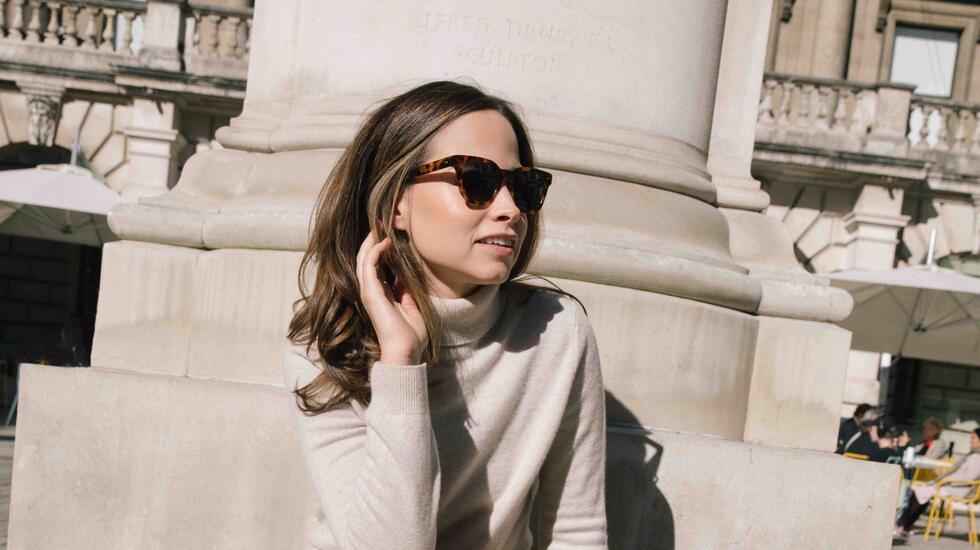
Serena
Guen MacLeod was just 22 when she published the first
issue of SUITCASE. Now, over 10 years and 39 issues later, she’s at
the helm of a women-led, multi-award-winning media company that has
continually championed a new generation of inspirational women in
the travel industry. Whether meeting the visionaries behind boutique hotels, showcasing
the fascinating, women-led startups putting lesser-known
neighbourhoods on the map, sharing the stories of notable individuals uplifting their communities, or
celebrating women-led traditions the world-over, empowering
women continues to shape the content SUITCASE creates. We sat down
with her to discuss the path she took when starting out, and the
women trailblazers who continue to inspire her today.
The biggest challenge I faced when launching SUITCASE
was being young. At the time, I had a lack of knowledge
and network. I had to teach myself everything – even down to
googling how to make a magazine.
The fashion and travel media industries are predominantly
female, so I didn’t feel particularly different at the time.
However, it suddenly became obvious when I was fundraising that 90
per cent of whoever was on the other side of the table were men.
Sure, there were likely legitimate reasons why SUITCASE didn’t fit
the portfolios of certain investors, but when you see that in 2022
only 6 per cent of venture funding went to women, it’s difficult
not to wonder.
Sadly, only nine of the current FTSE 100 CEOs are women, and
although SUITCASE is not quite a FTSE 100 company yet, I always
remain conscious of having women in our leadership positions. We’ve
had quite a few female lead investors – and a lot of them are
readers of the brand. Our board is also primarily women, as is our
team.
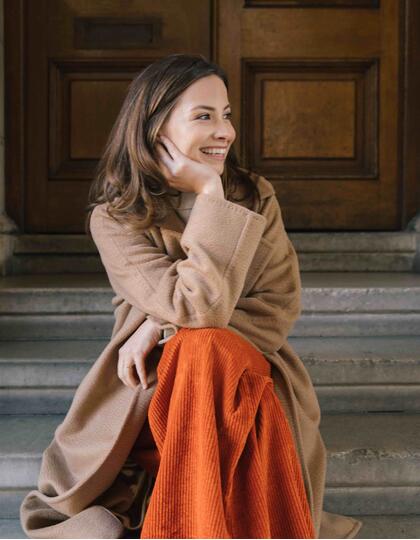
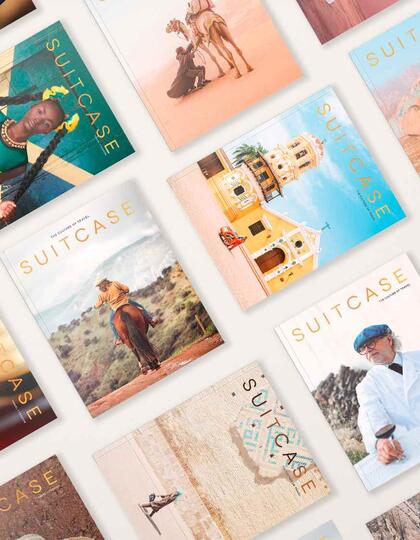
SUITCASE founder Serena Guen MacLeod. | Photo credit: Iona
Wolff
While the SUITCASE team is predominantly
female, that is by no means a reflection of what the rest
of the world looks like. There are still huge gender pay gaps and
institutional problems with anything to do with having children. I
saw in a recent study that women could be contributing an extra
£38billion to UK society (1 per cent GDP) if they had better, more
affordable childcare options.
SUITCASE is a small company, but we have policies that support
our female workers, be it paid time off for those with IVF or
adoption appointments, or flexibility on working hours for team
members who need to be available for childcare. I’m also currently
working on a menopause policy, something which is often
overlooked.
When I started SUITCASE, 90 per cent of trips were
researched and booked by women. Today, it’s still the case
that 80 per cent of travel-related decisions are taken by women.
There’s a lot of commentary surrounding topics like safety and
fashion when talking about women travelling. At SUITCASE, we
feature destinations that empower and enable the art of travel,
whoever you might be.
We love to spotlight female communities around the world, like
our Zanzibar seaweed mamas feature in Vol. 33: Collective and, in Vol. 39: Ritual, a story on the women of Kihnu island,
in Estonia, who are preserving their cultural heritage in the
skirts they weave. We’re also aware of who we work with. Keeping
our pool of writers and photographers as diverse as possible allows
us to give our platform different voices.
In our latest issue, Vol. 40: Visionary, there’s a brilliant story written
by Anna Richards about a group of French nuns who are using
permaculture principles to grow produce in their convent garden.
The feature is accompanied by incredible artwork courtesy of
illustrator Caroline Tomlinson.
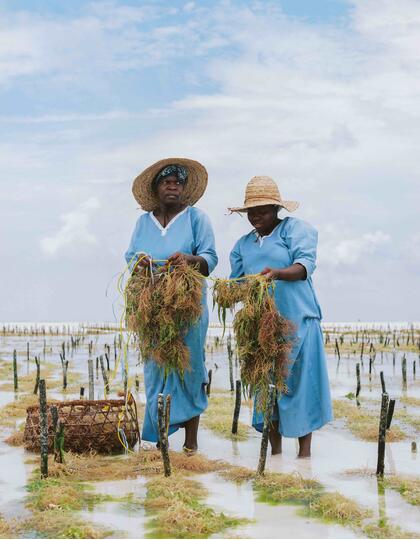
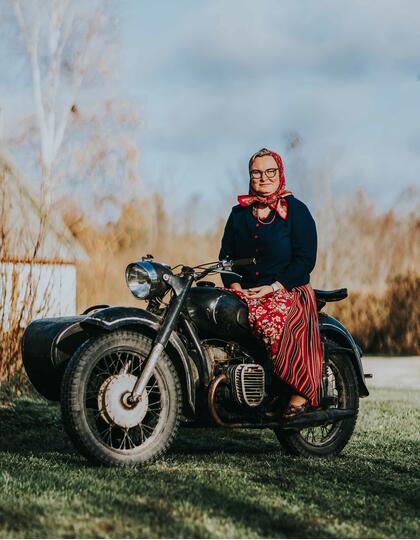
Seaweed gatherers in Zanzibar, and a matriach from Kihnu
Island. | Photo credit: Carl van der Linde, left, and Aron
Klein.
I really admire Katalina Mayorga, the founder of
El Camino
Travel. She’s a powerhouse who spotlights local
communities through her trips, educating people about all corners
of the world with her progressive and interesting lens on travel. I
also admire Tamara Lohan, one half of the duo behind Mr & Mrs
Smith; she’s done an incredible job of building the company up
through her leadership.
I love the adventures travel writer Sophy Roberts goes
on, as well as her writing style and how accessible and
down to earth she is. She’s also just recently launched a great
podcast, Gone to Timbuktu. I’m a big fan of the brand and
community that Yodit Eklund built around beachwear brand Bantu Wax, too. Another
notable woman pioneer is former editor of Wanderlust Phoebe Smith,
who has made it her mission to show people that for every overseas
destination they want to visit, they’ll find an equally beautiful
landscape in the UK. Plus, she has a charity that provides travel
experiences for underprivileged kids across the UK.
There are some really cool women-led travel communities
popping up. I love what Black Girls Hike and Hike Clerb are
doing in the US, as well as UK-based The
Wanderlust Women, a hiking and adventure group that encourages
Muslim women to explore beyond urban boundaries.
An easy way to support women while you travel is to seek
out businesses run by them. London’s River Café is
one of my favourites. Ruth Rogers has done amazing things there, in
the kitchen, on her podcast and more.
Then, there’s the inimitable Marie-Louise Sciò, owner of
Hotel Il Pellicano, who has created a whole brand
around her collection of hotels and lifestyle. And I love Kit Kemp
and her Firmdale kingdom, too. I also can’t wait to see
Laurence Leenaert’s new riad, Rosemary, open in Marrakech later
this year.
